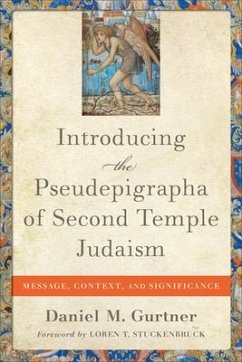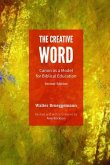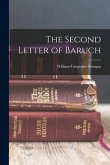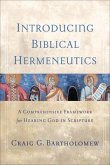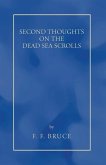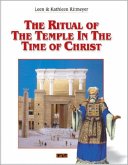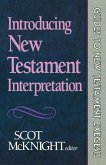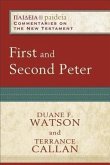"A comprehensive, well-informed, and up-to-date introduction" This book introduces a much-neglected and misunderstood assortment of Jewish writings from around the time of the New Testament. In surveying many of the most important works, Daniel Gurtner demonstrates that the pseudepigrapha are best appreciated in their own varied contexts rather than as mere "background" to early Christianity or emerging rabbinic Judaism. "Since the discovery of the Dead Sea Scrolls it has become clear that pseudepigrapha are critical for understanding ancient Judaism and Christianity. Daniel Gurtner provides a much-needed new introduction to these writings, deftly synthesizing cutting-edge specialist research into an engaging and accessible book brimming with insights that will challenge and delight. The result is a perfect resource for teaching as well as an ideal entry point for readers interested in learning more about these fascinating but neglected writings." --Annette Yoshiko Reed, professor of religious studies, New York University "This is a comprehensive, well-informed, and up-to-date introduction to a large body of literature deriving from early Judaism. Scholars are becoming more cautious about which of the so-called Old Testament Pseudepigrapha we can be confident derive from that milieu. Gurtner rightly gives most attention to those that are generally agreed to be Jewish works from the Second Temple period, but he also discusses others that have often been treated as such so that readers may be aware of the issues of date and provenance that are still uncertain. This is a very helpful reference work, both for those who are new to this field and for those who have already engaged with this fascinating body of literature." --Richard Bauckham, emeritus professor of New Testament studies, University of St. Andrews "The collection known as the Old Testament Pseudepigrapha is an indispensable resource for appreciating developments within Second Temple Judaism and early Christianity--but where is one to begin, and what is one to look for in these texts? Gurtner's distinguished history of research in this corpus makes him a reliable guide for the uninitiated explorer. He focuses here on a judicious selection of the most influential and illuminating writings within this collection and orients the reader to what each contributes to our knowledge of the varieties of thought among, the multiform challenges addressed by, and the contributions of these writers, while also giving briefer orientations to other works throughout the larger collection. This is now perhaps the premier point of entry into these writings, which might otherwise seem inaccessible." --David A. deSilva, Trustees' Distinguished Professor of New Testament and Greek, Ashland Theological Seminary

